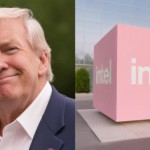America's efforts to return to the moon for the first time in 50 years have been delayed after private aerospace companies canceled planned moon landings and NASA delayed manned missions by at least a year.
Astrobotic Technology announced Tuesday that its unmanned Peregrine spacecraft failed to soft-land on the moon due to a fuel leak. A stuck valve may have caused the tank to explode hours after the moon launch was launched. Astrobotic said the spacecraft could still collect valuable data but was expected to run out of fuel on Thursday. The moon landing was scheduled for Feb. 23, the first in the private company's history and the first U.S. landing since 1972. Houston-based Intuitive Machines plans to launch a manned lunar mission next month. Astrobotic's decision comes on the same day that NASA delayed its lunar mission plans by a year. The Artemis II mission, which aims to fly four astronauts around the Moon aboard NASA's next-generation capsule, has been delayed until September 2025. The Artemis III project, which would land astronauts at the lunar south pole, has been delayed until September 2026.
NASA said it needs more time to adapt and test new technologies on the Orion spacecraft, including life support systems and heat shields for crew flights. Elon Musk's SpaceX has signed a contract to supply a new lander for NASA's Artemis III.
"We're going back to the moon like never before," NASA Administrator Bill Nelson said in a statement. "Astronaut safety is NASA's top priority as we prepare for future Artemis missions." He said initial testing of the equipment revealed problems that would take a long time to resolve.
The Astrobotic spacecraft carried 20 payloads for private and government customers, including NASA, which wants to explore the Moon. The company developed Peregrine under a $108 million contract from NASA, which envisioned the mission as a way to land a relatively inexpensive lander on the moon. The vehicle contains science equipment and navigation sensors for NASA.







